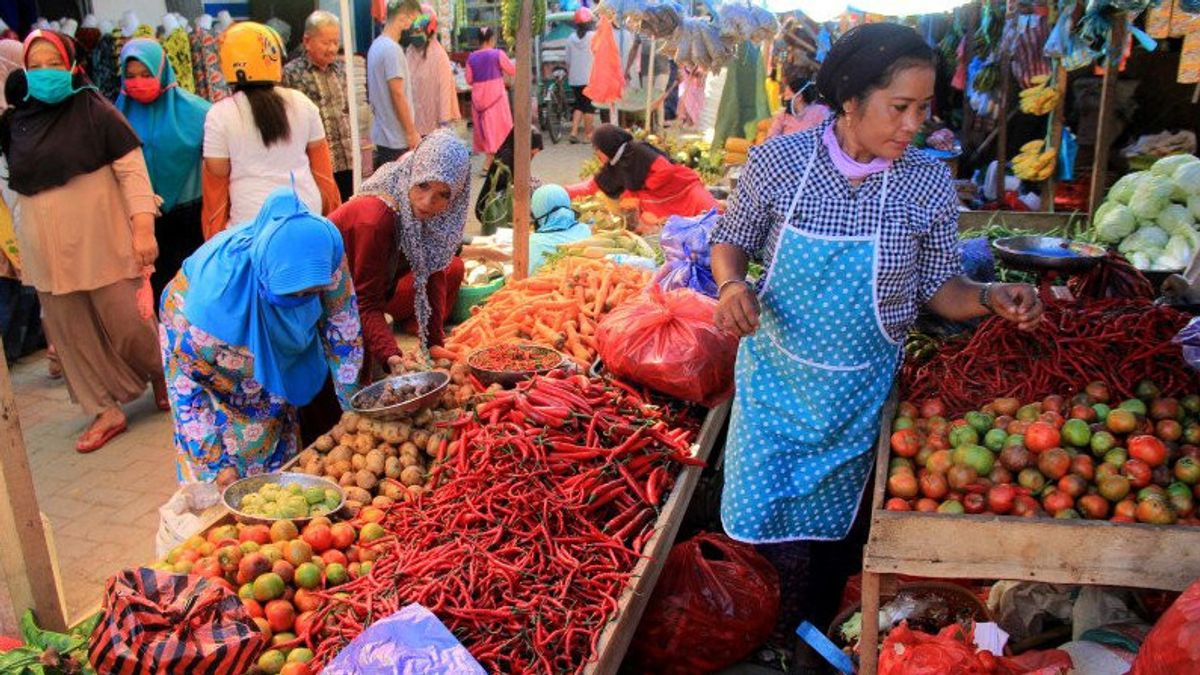JAKARTA - The government through the Coordinating Minister for the Economy Airlangga Hartarto said that inflation which was sloping from 4.94 percent in July to 4.69 percent in August could not be separated from efforts to strengthen the work of the Regional Inflation Control Team (TPID).
According to him, the synergy between the Central Inflation Control Team (TPIP) and TPID succeeded in suppressing the main factor causing inflation in July, namely volatile food by 11.47 percent to 8.93 percent in August.
"Currently, the impact of global conditions is still difficult to control, but what we can strive to maintain domestic prices while maintaining the supply chain, namely mainly food commodities. TPIP-TPID will continue to synergize and work together to maintain price stability and control Indonesia's inflation achievements," he said in a written statement from Surabaya, Wednesday, September 14.
Airlangga added that the urgency to stabilize food prices is because food contribution to poverty reaches 74.1 percent. It is stated that the implications for increasing food prices will increase poverty.
Based on data from the National Food Agency, in the first week of September 2022, the stock of garlic, chicken, and beef commodities was safe in 34 provinces.
Meanwhile, large chili commodity stocks are in vulnerable condition in 17 provinces and vulnerable/unsafe in 10 provinces.
Meanwhile, what still needs to be watched out for is the stock of cayenne pepper commodities which are in vulnerable condition in 14 provinces and are vulnerable/unsafe in 10 provinces.
"To all regions to focus on programs that can immediately stabilize prices and ensure supply availability," he said.
Furthermore, Airlangga said, it is also necessary to expand Inter-regional Cooperation (KAD), especially for surplus/deficit areas in maintaining the availability of commodity supplies.
In addition, increasing the implementation of market operations in ensuring price affordability by involving various stakeholders, including improving the Food Availability and Price Stability (KPSH) program to immediately stabilize rice prices.
I again emphasize to all regions, there is no need to hesitate to use Unexpected Assistance (BTT) in controlling inflation, and optimizing Physical Special Allocation Funds (DAK) for thematic food security. There is also the use of 2 percent of the General Transfer Fund (DTU) to assist the transportation sector and additional social protection, because there is already a Regulation of the Minister of Finance and a Circular of the Minister of Home Affairs," he explained.
In the future, TPIP-TPID is expected to continue to strengthen coordination and synergy of policy programs to stabilize prices, especially after the adjustment of fuel to support the achievement of national inflation to remain under control.
The English, Chinese, Japanese, Arabic, and French versions are automatically generated by the AI. So there may still be inaccuracies in translating, please always see Indonesian as our main language. (system supported by DigitalSiber.id)








